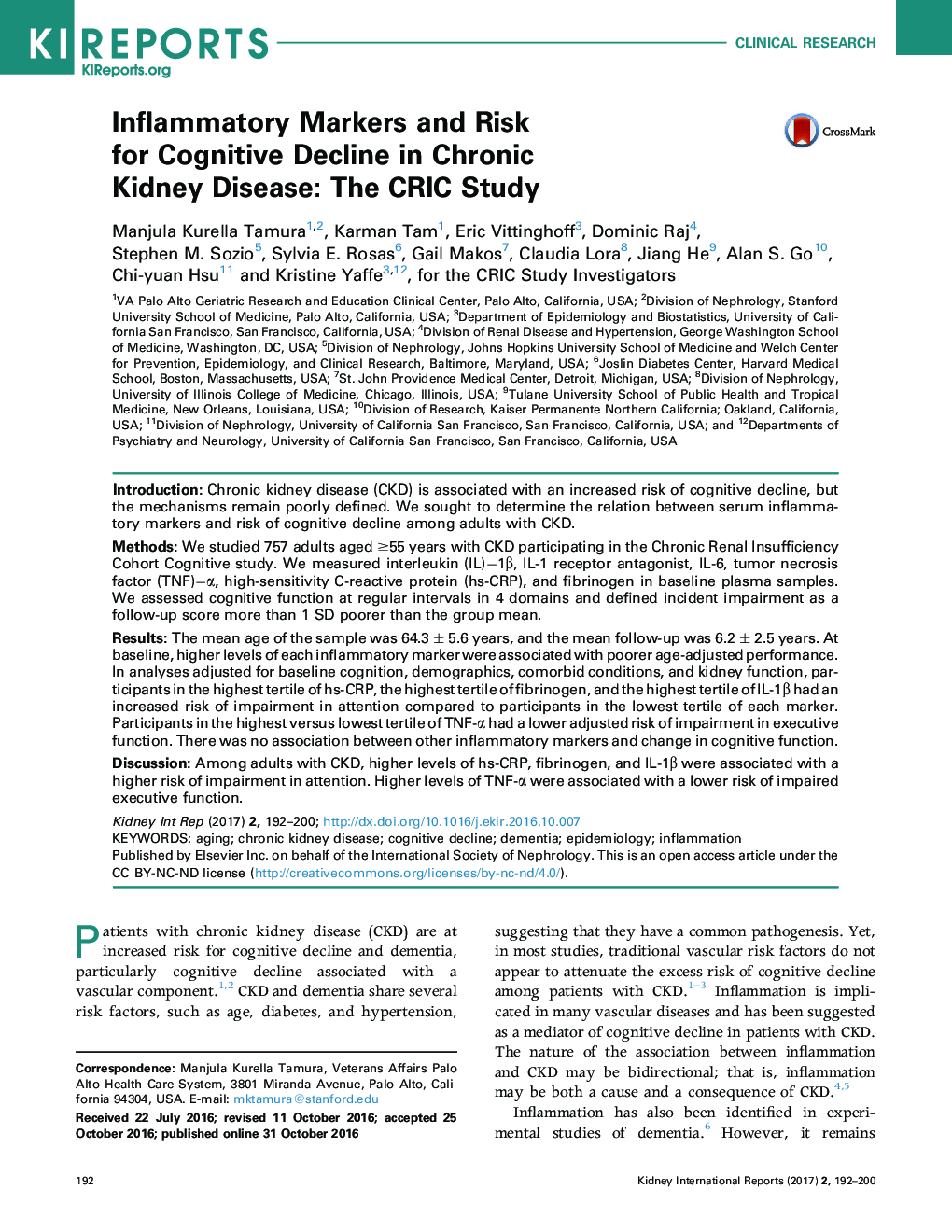| Article ID | Journal | Published Year | Pages | File Type |
|---|---|---|---|---|
| 5689561 | Kidney International Reports | 2017 | 9 Pages |
IntroductionChronic kidney disease (CKD) is associated with an increased risk of cognitive decline, but the mechanisms remain poorly defined. We sought to determine the relation between serum inflammatory markers and risk of cognitive decline among adults with CKD.MethodsWe studied 757 adults aged â¥55 years with CKD participating in the Chronic Renal Insufficiency Cohort Cognitive study. We measured interleukin (IL)â1β, IL-1 receptor antagonist, IL-6, tumor necrosis factor (TNF)âα, high-sensitivity C-reactive protein (hs-CRP), and fibrinogen in baseline plasma samples. We assessed cognitive function at regular intervals in 4 domains and defined incident impairment as a follow-up score more than 1 SD poorer than the group mean.ResultsThe mean age of the sample was 64.3 ± 5.6 years, and the mean follow-up was 6.2 ± 2.5 years. At baseline, higher levels of each inflammatory marker were associated with poorer age-adjusted performance. In analyses adjusted for baseline cognition, demographics, comorbid conditions, and kidney function, participants in the highest tertile of hs-CRP, the highest tertile of fibrinogen, and the highest tertile of IL-1β had an increased risk of impairment in attention compared to participants in the lowest tertile of each marker. Participants in the highest versus lowest tertile of TNF-α had a lower adjusted risk of impairment in executive function. There was no association between other inflammatory markers and change in cognitive function.DiscussionAmong adults with CKD, higher levels of hs-CRP, fibrinogen, and IL-1β were associated with a higher risk of impairment in attention. Higher levels of TNF-α were associated with a lower risk of impaired executive function.
